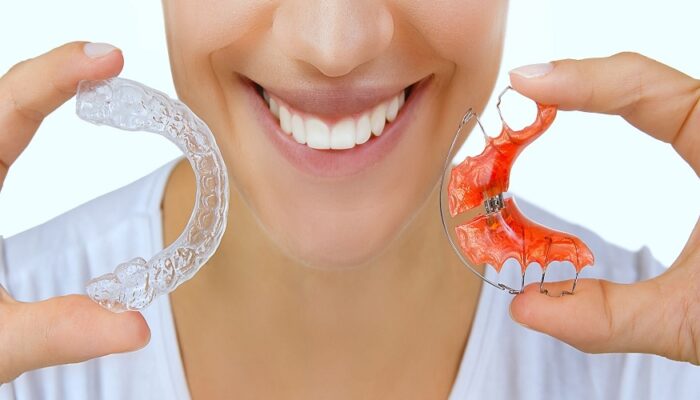
This article will teach you all you need to know about Invisalign and retainers, as well as the distinctions between the two. Of course, everyone desires a dazzling white smile. But, aside from appearances, having straight teeth might benefit your oral health. In addition, having an equal bite and wear pattern on your teeth might help minimise jaw discomfort and uneven wear and strain. With retainers and Invisalign, you may obtain your beautiful, healthy smile in an ever-expanding area of cosmetic dentistry.
What exactly is Invisalign?
Invisalign is a system of custom-made aligner trays used to move teeth to the desired position progressively. First, you will see your dental team have personalised X-rays and moulds taken and establish a plan for achieving the desired results. Once you and your dentist have agreed on a treatment plan, your moulds and plan are transmitted to Invisalign, which creates custom trays. The trays are known as aligners.
Aligner trays are detachable but must be worn for roughly 22 hours daily. You will need to replace your trays every two weeks and see your dentist every 4 to 6 weeks to monitor your progress.
What exactly is a retainer?
Retainers are custom-made devices that are used to keep your teeth in place. Because some retainers are constructed of the same material as Invisalign trays, the two are often mistaken. Retainers may be constructed of various materials such as hard plastic, metal, and acrylic.
The fundamental distinction between retainers and Invisalign is their function. Invisalign is used to straighten and correct your teeth, whilst retainers keep them in place once they have been relocated. After completing any teeth straightening procedure, your teeth may gradually return to regular positions without needing retainers. Retainers and Invisalign may be used in tandem to create a long-term dental plan. Invisalign straightens the teeth, while a retainer keeps all of the work done.
Retainers usually are only worn at night when sleeping. This is because they are fitted to suit your teeth when the straightening treatment is complete, and they must be used continuously to be successful.
It is essential to take adequate care of your retainer. Most retainers, like your teeth, will need to be cleaned and brushed. Clean your retainer once daily using a soft bristle toothbrush, a pea-sized quantity of toothpaste, and warm water. This will not work for all retainers, so check with your dentist about correct maintenance. You must keep your retainer clean to maintain good dental health.
A qualified dentist can adequately answer your questions about creating the most beautiful and healthy-looking smile with retainers and Invisalign. We are delighted to assist you with any dental requirements, from providing teeth whitening information to explaining how dental bonding works in the bridge and crown procedure. We are here to work with you to establish and design a successful treatment plan and then execute that plan flawlessly. Many people find that combining retainers with Invisalign is a feasible treatment option. While they are sometimes confused for one another, they are, in fact, two essential parts that should be coupled together for long-term success.
